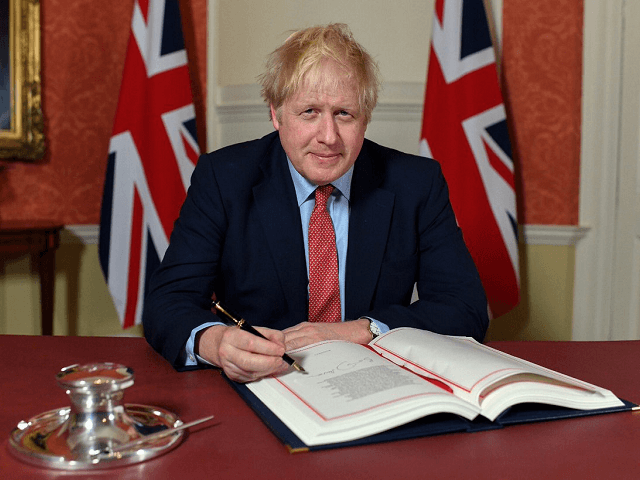On January 9th the United Kingdom (UK) House of Commons passed the EU Withdrawal Agreement Bill which formally ends their ties with the European Union (EU). Three and a half years after the British people voted to leave the European Union, in June 2016, the bill passed. Thus, after three Prime Ministers, three national elections and 1,295 days after the referendum, the House of Commons begins the return of the British nation back to the British people.
Brexit is officially a treaty between the European Union, Euratom (European Atomic Energy Community), and the United Kingdom, setting the terms of the withdrawal of the UK from the EU and Euratom. The text of the 600 pages treaty were published on October 17, 2019. The current text is a renegotiated version of an agreement published half a year earlier. An earlier version of the withdrawal agreement was rejected three separate times by the House of Commons. This lead to the resignation of Prime Minister Theresa May.

The United Kingdom (orange) and the remaining 27 member states of the European Union (blue)
The UK’s Brexit Exit bill out of the EU passed by Parliament January 22nd, was given Royal assent by the Queen January 23rd to become law, was signed by British Prime Minister Boris Johnson on January 24th, and the official withdrawal date from the EU is January 31st. This goes contrary to globalization and will have world wide impact on trade affairs as the British will once again be sovereign and working for themselves. This is an incredibly big event for the UK.
Prime Minister Boris Johnson took a play from the Trump playbook announcing that he would bypass the dominant media on Brexit day and speak directly to the people through social media, eliminating any editing of the news event. This has reportedly angered the BBC at being cut out of their decision on what constitutes news.
This is not the first time Johnson has spoken directly to the British people in his tenure as Prime Minister. He has been utilizing social media to speak directly to the public as a substitute for briefings with dominant media journalists. Johnson’s video Livestream weekly ‘People’s Prime Minister’s Questions’, is an example of this. Followers of the program can Tweet questions directly to the Prime Minister.
Johnson discussed his plans for Brexit night on Wednesday’s session of the livestream broadcast, where he announced he would take his message directly to the people via his social media pages Friday evening (afternoon in the US) in a “fireside chat” style at 10 Downing Street, the official residence of the rime Minister.
——–

The following is from Breitbart News and has been edited to reflect current information.
The President of the European Commission, the head of the European Council, and UK Prime Minister Boris Johnson have signed the agreement governing the United Kingdom’s withdrawal of the European Union, one of the final steps towards Brexit at the end of January.
New Commission president Ursula von der Leyen shared photographs of herself and European Council president Charles Michel signing the document — in blue ballpoint pens, an informal touch defying the normal global convention of signing treaties with real ink pens.
“Brexit is a fight for the very sovereignty of our nation” — James Forsyth
The leather-bound, 600-page document was then rushed to London by diplomatic courier where it was signed British Prime Minister Boris Johnson at Downing Street, his official residence. The Prime Minister was photographed signing the document with a fountain pen. Noting the importance of the occasion, Mr Johnson said: “This signature heralds a new chapter in our nation’s history.”
Now the withdrawal agreement has been signed off by Britain’s Parliament, having passed both houses and been made law by Queen Elizabeth II, by top Eurocrats von der Leyen and Michel, and by Prime Minister Johnson, the final approval was ratified by the European Parliament January 30th.
Charles Michel wrote of the occasion that while there would be change between the UK and the EU, the two would remain friends and he was looking forward to writing a new page in history.
As British newspaper The Guardian notes, the bumper document signed by the Eurocrats stands at an astonishing 600 pages of type, and governs the coming months and years between the United Kingdom and the European Union.
While Britain is technically leaving the EU on January 31st, in reality, it is then entering a half in, half out limbo period where many European laws and regulations still apply to the nation, even though it is not a member and as such no longer has representation in European institutions. The UK will remain in this state of limbo — it hopes — for 11 months until the end of 2020, when a trade deal would be signed and the country would move forward on a new footing.
On January 30, 2020, the European Union deposited its instrument of ratification of the Agreement, thus concluding the deal, and allowing it to enter into force at the moment of the United Kingdom’s withdrawal from the Union at 11 p.m. GMT on January 31, 2020.
Michael Reed is Editor of The Standard.




 RSS - Posts
RSS - Posts